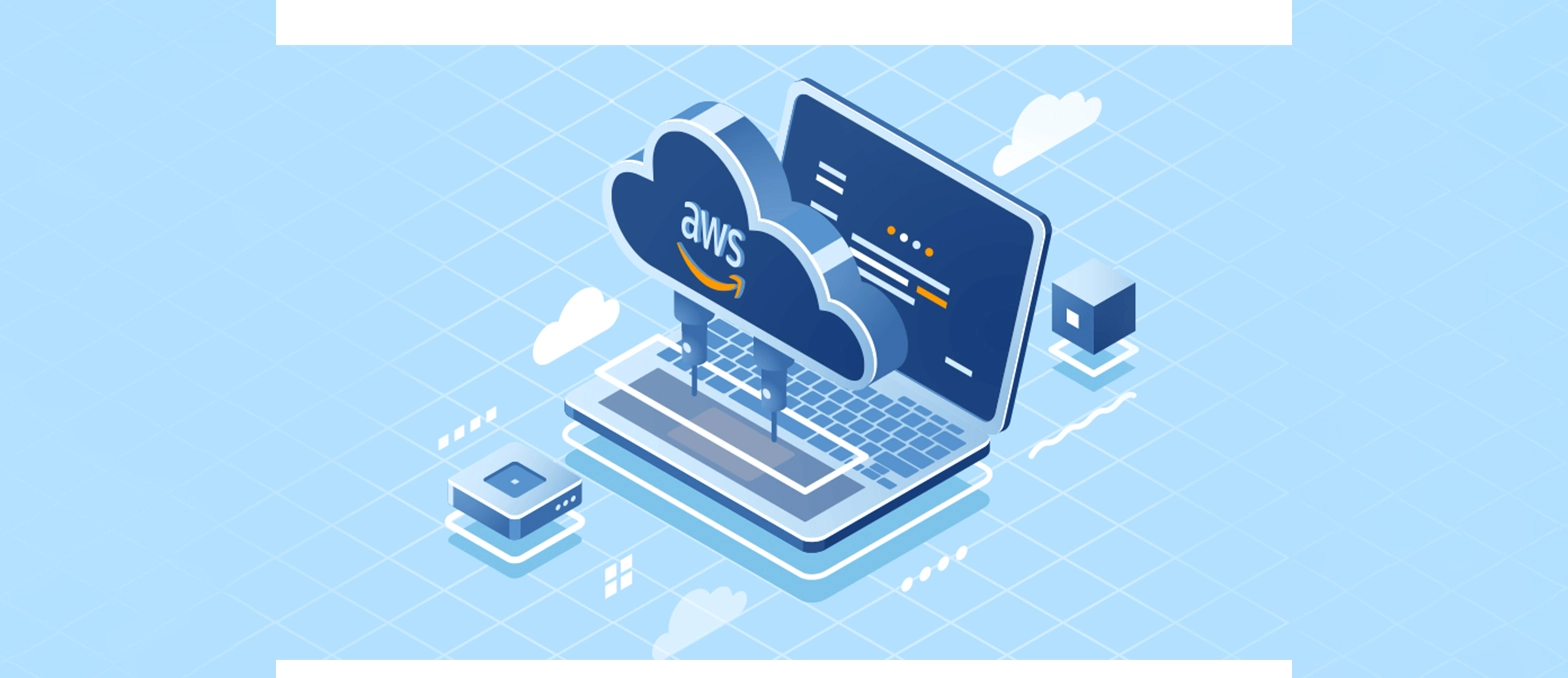Mobile app security and monitoring is an integral component of software development. It helps developers ensure that mobile app development that they create are free from malicious attacks. As mobile device usage continues to rise, so too does its importance for protecting user data and preventing hacking attempts.
Mobile app development companies in the USA are subject to numerous threats, including malicious code injection, privilege escalation, data theft, denial-of-service (DoS) attacks, man-in-the-middle (MITM) attacks and session hijacking.
Developers can safeguard their mobile applications by monitoring these threats and taking necessary measures against them – this way ensuring their own apps’ safety.
Table of Contents
Importance of mobile app security
1. Protect User Data
It is paramount for app developers to prioritize mobile app security and monitoring in order to safeguard user information, in order to protect it against malicious attacks or any unauthorized access. In particular, two-factor authentication should be prioritized.
2. Determine Risk Factors
Mobile app security and monitoring allows developers to quickly identify any weak spots or vulnerabilities within their apps that might expose users to malicious attacks and unapproved access. By recognizing such risk factors, developers can implement necessary precautions and protect users from unwanted intrusions or attacks.
3. Enhance UX in Mobile app development
Security and monitoring are integral to creating an enhanced user experience. Securing mobile apps helps safeguard users against data breaches and cyber threats, making them feel more at ease while using them. With enhanced security measures in place, developers can ensure their applications run optimally while meeting user expectations.
4. Reduce Business Risks
Mobile app security and monitoring help minimize risks related to data breaches and malicious attacks on mobile applications. Helping protect businesses against reputational, financial, and legal liabilities associated with such attacks. By adopting effective security practices businesses can mitigate their chances of experiencing data loss or harm to their reputation.
5. Enhance Compliance
Mobile app security and monitoring are integral in upholding compliance with relevant laws and regulations, such as GDPR and HIPAA. Organizations should make sure their mobile apps comply with current industry standards such as these through monitoring security for their apps.
6. Anticipate Emergencies
Be Prepared in Advance for emergencies by planning ahead for potential crises. Security and monitoring for mobile apps is vital for custom mobile app development companies to be prepared for potential emergency situations. By regularly checking the security of their apps, developers can be prepared to quickly respond to any malicious attacks or data breaches and take measures to protect users should any unforeseen emergencies arise.
Monitoring is an essential element in assuring app security
1. Assessing Security Vulnerabilities:
Monitoring can assist app developers in recognizing any security vulnerabilities within their applications. By closely watching an app’s performance, development teams can spot any unexpected changes that could represent potential security threats. Such as when large amounts of data suddenly flow out or the user interface has changed significantly without explanation.
2. Monitor for Updates and Security Patches:
App developers and top mobile app development companies in the USA should monitor their applications regularly for updates and security patches to ensure any new features or security flaws.
3. Monitor User Activity:
App developers should closely track user activity in their applications to gain valuable insights into how users are engaging with it and any suspicious or unexpected behaviors, helping identify any security threats and taking measures to address them quickly.
4. Logging and Analyzing Data:
App developers should keep an eye on user activity to monitor for any abnormal or suspicious patterns or anomalies. By analyzing log files or other sources of data quickly, app developers can identify potential security concerns quickly and take immediate steps to address them.
5. Automated Security Scan:
App developers should also employ automated security scanning tools to detect potential vulnerabilities or malicious attacks against their code, including any attempts by third-parties to gain unauthorized entry to it. Such scans can help top mobile application developers, pinpoint any weaknesses within it as well as attempts by these parties to gain unauthorized entry.
Mobile Applications typically encounter these Security Threats
As mobile app developers know, security and monitoring are vitally important to creating successful products. Top mobile app developers contain sensitive user data that must be protected against potential security threats; there are ways to minimize app-related vulnerabilities; it is crucial to first understand which are the most prevalent issues with apps.
1. Unauthorized Access:
Unauthorized access is one of the primary security risks to mobile apps, occurring when an attacker gains unauthorized entry through weak or nonexistent authentication measures.
2. Data Leaks:
Mobile apps often face security risks from data leaks. This occurs when sensitive user information such as passwords or credit card details become accessible to third-parties without authorization – either due to malicious actors gaining entry through malicious or careless coding practices, or through negligence on part of developers themselves.
3. Malware and Viruses:
Malware and viruses present another security risk to mobile apps. Malicious programs could steal user data, install unapproved applications on a device in various custom mobile app development companies or even disable it completely – thus it is essential that app developers take measures to safeguard their apps against malware and viruses.
4. Insecure APIs:
APIs are a vital part of mobile apps, enabling the different parts to interact seamlessly. If these APIs aren’t properly secured, however, this could result in data breaches or malicious attacks against the app itself.
5. Social Engineering:
Social engineering is a form of attack which relies on coercing users into giving away confidential data, such as passwords or credit card details. Attackers use various techniques like phishing emails and fake websites to trick victims into divulging this sensitive data; app developers should take measures to safeguard their apps against these types of attacks.
6. Weak or Nonexistent Authentication:
Its Mobile apps face another security risk from weak or nonexistent authentication measures, with weak implementation allowing malicious actors access to both their apps. Data as well as attackers posing as legitimate users. Developers should ensure their authentication system is strong. Secure by employing techniques like two-factor authentication or encryption to keep malicious actors at bay.
Examples of Recent Mobile App Security Breaches
1.Apple App Store:
In November 2025, reports surfaced of Apple having identified a security flaw within their App Store payment system that allowed hackers to gain entry and make unauthorized purchases using stolen credit card details from users’ accounts. As a result, Apple temporarily disabled purchases within their store until all issues had been addressed and resolved fully.
2. Parler Data Breach:
In January 2021, hackers gained access to user data stored by social media app Parler by exploiting an unpatched security flaw in its authentication system. As a result of this breach, 70 million records containing personal information such as usernames, emails addresses and location data were made publicly available online.
3. WhatsApp Vulnerabilities :
In May 2019, a vulnerability in WhatsApp was discovered that allowed malicious actors to gain entry by sending specially crafted video files. Once inside, attackers could use compromised devices to spread malware, steal user data or gain control over them.
4.Google Play Store Malware:
Google removed over 100 malicious apps from its Play Store after discovering they contained “Agent Smith” malware, which could steal data from affected devices while also showing ads or downloading additional malicious applications.
5. Zoom App:
In April 2021, another security breach took place when an infiltrator uploaded a fake version of Zoom app onto Google Play to steal user data – such as passwords and credit card details – through theft. As soon as Google was aware of this malicious app’s presence in their store, they quickly took action by withdrawing it from it immediately.
Mobile app development services and App developers know that mobile app security and monitoring is of vital importance in order to ensure their apps are free from malicious attacks.
By taking proactive measures like encryption, strong authentication methods, and regular vulnerability scans they can significantly decrease risk associated with data breaches and other security threats.
It is also essential to monitor any activity within an app to detect suspicious behavior quickly so swift action can be taken as needed.
Proactive Security Measures offer Numerous Advantages.
1. Enhancing user experience:
Proactive security measures are key for creating an enjoyable user experience free of threats or data breaches. By closely monitoring user activity and detecting potential dangers, app developers can ensure users feel safe using their apps – something essential for customer retention and loyalty.
2. Increased Security:
Implementing effective security measures can help safeguard an app against attacks. Authentication methods, data encryption, and regular vulnerability scans all work towards keeping their apps secure from attackers.
3. Cost Savings:
Proactive security measures can save both time and money over the long term by helping prevent costly data breaches. By taking proactive steps early on to safeguard their app from possible security incidents that might cost more in terms of time and money.
4. Improved Compliance:
Employing security measures can be key to ensuring an app complies with various Mobile app development companies and industry regulations and standards. By taking preventative steps like encrypting data and using strong authentication methods. Developers can demonstrate that their app satisfies all relevant regulatory requirements. While building customer trust between themselves and developers, in addition to satisfying any laws or regulations applicable to their app.
5. Increased Visibility:
Mobile app developers that implement security and monitoring can gain greater insight into user behavior and identify threats quickly. Detect suspicious activity that indicates malicious intent and gain insight into trends that can help enhance the overall user experience.
Best Practices for Mobile app Security
1. Secure Data Transmission:
App developers should ensure all data transmissions take place over HTTPS and use encryption whenever feasible. Using two-factor authentication. when logging in or sending sensitive data across networks in order to protect user accounts.
2. Secure Data Storage:
App developers must make every effort to protect all user data stored with them, which includes employing strong encryption algorithms and creating an emergency backup plan in the event of disaster or security breach.
3. Regular Vulnerability Scans:
App developers should run regular scans of their applications to identify vulnerabilities that could be exploited by malicious actors. Such scans should cover both code and infrastructure of an application, with any identified issues addressed immediately.
4. Application Firewall:
App developers should implement an application firewall to safeguard their apps against malicious actors and attacks such as DDoS, SQL injection and cross-site scripting. A firewall can help ward off attacks such as DDoS, SQL injection and cross-site scripting; while also notifying developers if suspicious activity or attempts at accessing sensitive data occur.
5. Conduct Regular Security Audits:
iOS app development agencies should conduct regular security audits of their app in order to detect any vulnerabilities that could be exploited by attackers. Audits should cover both code and infrastructure aspects of an app, with identified weaknesses addressed immediately – additionally security audits can detect suspicious activity that indicates potential malicious intent on its part.
6. Monitor App Usage:
Developers should keep tabs on how their apps are being utilized by users to gain insight into user behaviors and trends. By monitoring usage, developers can detect any suspicious activity such as attempts at accessing sensitive data that could indicate malicious attacks; and gain an understanding of user habits which could improve overall user experiences.
7. Security Alerts and Notifications:
App developers should implement security alerts and notifications to be aware of any suspicious activity or attempts at accessing sensitive data. Enabling them to quickly detect potential risks and take necessary actions to mitigate them. Furthermore, this provides insight into user behaviors which can help enhance overall user experiences.
Role of Monitoring in App Security
1. Recognize Threats:
Monitoring provides visibility into all activities taking place within a mobile application, making it easier to quickly detect and respond to potential threats in real-time.
Monitoring can detect data leakage, brute force attacks or unauthorized access by third parties – such as data loss. Real-time updates on suspicious activity enable app developers to quickly identify and address potential dangers that might threaten app functionality.
2. Monitor Performance:
Metrics such as response time, memory usage and network throughput allow app developers to assess an app’s performance and ensure it meets user expectations.
By tracking such key indicators as response time, memory consumption and network throughput they can identify any areas where performance could be enhanced further.
3. Recognizing User Trends:
Monitoring can also help android app development companies detect user trends and behaviors within an app, giving insight into how users are engaging with it and helping to enhance overall user experiences.
By tracking user activity within their app, developers gain a better understanding of how users are interacting with it while providing insight to enhance overall user experiences.
4. Create Security Objectives:
Monitoring can also help establish a security baseline for an app, providing developers with a clear picture of “normal” app behavior so they can easily detect any anomalous activity or threats to its security.
5. Draft Security Policies:
Utilizing monitoring data, app developers can craft rigorous security policies that address any threats or vulnerabilities. Such policies should include clear guidelines on data handling and access control as well as measures designed to protect personal information of users.
By setting proper security protocols in place, best mobile app development companies can help prevent malicious activity while preserving user privacy.
6. Implement Security Protocols:
To protect their mobile apps from being breached by malicious attacks and ensure the integrity of an app, developers should implement secure protocols and practices into their apps’ development process.
This means implementing measures such as encryption, two-factor authentication and access control policies. Measures which could protect user data from being stolen or accessed without authorization – as well as prevent malicious attacks that might undermine integrity.
Security Patches for mobile app Security – Regularly Reviewing
1. Strengthen Security:
Regular security updates and patches help strengthen an app’s overall security by addressing any existing or potential vulnerabilities in its code. App developers must therefore keep abreast of new fixes to safeguard user data against potential malicious activity and avoid potential liability issues.
2. Stay Relevant:
Mobile app security is constantly evolving, making it essential for developers to keep abreast of current security protocols and practices. Regular updates also help ensure compatibility between their app and new devices, operating systems and networks.
3. Enhance Performance:
Security patches can help enhance app performance by eliminating bugs or issues which cause it to run slowly or crash unexpectedly. By making sure all security patches are applied, developers can help prevent potential performance issues that could impede its use.
4. Improve User Experience:
Regular updates and patches can also help enhance the overall user experience by adding new features, fixing bugs or providing improved customer support. By keeping their apps current with these improvements, developers can help ensure users enjoy safe experiences when using their applications.
5. Protect Data:
Updates and patches help developers protect user data from any possible malicious attacks by regularly updating security protocols. By doing this, they can help prevent user information from being stolen or accessed without authorization. Moreover preventing activities like man-in-the-middle attacks, phishing attempts or any form of cybercrime from taking place.
6. Prevention:
Mobile app security monitoring can also be used proactively to detect any threats before they have a chance to cause any harm. As well as notifications and alerts in place, developers will receive alerts whenever any suspicious activities occur.
7. Automation:
Security monitoring tools can also help automate certain security processes. Like patching and updating, to save developers time while assuring the app remains secure at all times. This enables mobile app development companies in the USA to focus on more pressing tasks while still remaining assured of its ongoing protection.
Future of Mobile App Security
1. Enhancing AI-Based Security Solutions:
As mobile app security evolves, AI solutions have the power to detect malicious code and screen out suspicious activity more quickly and accurately than their manual counterparts.
2. Increased App Store Security:
Both Google Play and Apple’s iOS are making significant investments into their security infrastructure to safeguard users from potentially dangerous apps.
3. Implementation of Biometric Authentication:
Mobile app developers have increasingly turned to biometric authentication methods like fingerprint or facial recognition as an extra layer of security for their apps.
4. Increased Adoption of Security Standards:
OWASP and similar organizations have played a pivotal role in developing industry-wide standards for mobile app security, helping ensure all apps remain protected from attack.
5. Heightened Awareness of Security Risks:
With increasing awareness of security threats among app developers and the need to safeguard user data against possible attacks, more are becoming aware of how important it is to secure apps and protect their user base against possible attacks on them.
Conclusion
Mobile app security and monitoring should be an essential component of the development process for all applications, and app developers should make every effort to protect their apps against potential attacks, data breaches, unauthorized access, and other threats.
iOS and Android app development companies can ensure their apps remain safe for their users, keeping the users secure while keeping costs to a minimum. Understanding this aspect is key in keeping their applications safe for everyone who uses them.
FAQs
1. What are mobile app security and monitoring?
Mobile app security and monitoring refers to safeguarding mobile applications against any illegal or potentially damaging activities by employing various technologies to detect, prevent, and report potential security threats or vulnerabilities in real time.
2. Why should app developers prioritize mobile app security and monitoring?
App developers must ensure mobile app security and monitoring remain top priorities, in order to safeguard user data while also preventing malicious activities such as man-in-the-middle attacks, phishing attempts, or other forms of cybercrime. Furthermore, this ensures a positive user experience and keeps their reputation intact.
3. What are some strategies for mobile app security and monitoring?
Some strategies for mobile app security and monitoring include using secure coding practices, implementing encryption technologies, setting notifications and alerts, automating certain security processes. Using AI-based solutions to detect malicious code, prioritizing app store security measures such as biometric authentication and increasing awareness of security risks.
4. What are the advantages of mobile app security and monitoring?
Mobile app security and monitoring offer several benefits, including increased user safety, enhanced privacy for user data, better protection from cybercrime, greater trust from users, and an overall increase in reputation for the app.
5. What are the risks associated with not implementing mobile app security and monitoring?
Implementing mobile app security and monitoring measures is extremely risky. Failing to implement such safeguards could also decrease user trust for the app and damage its reputation.
6. What are some best practices for mobile app security and monitoring?
Some best practices for mobile app security and monitoring include android app development agencies using secure coding practices, properly encrypting data, creating notifications and alerts.
Using a dedicated security team, automating certain processes related to security. Using AI-based solutions to detect malicious code, prioritizing app store security measures such as biometric authentication.






